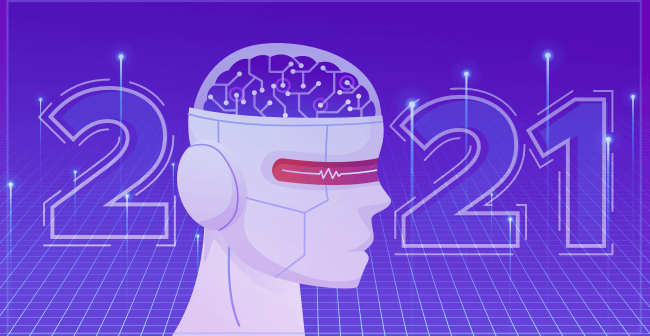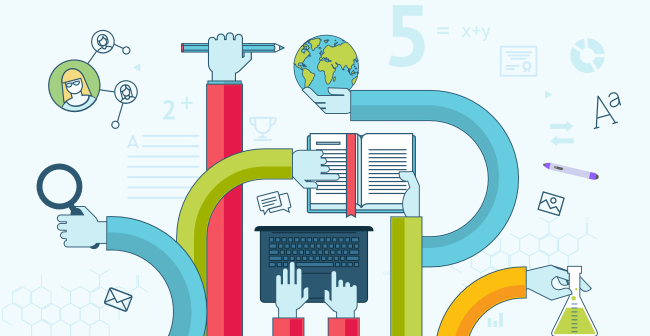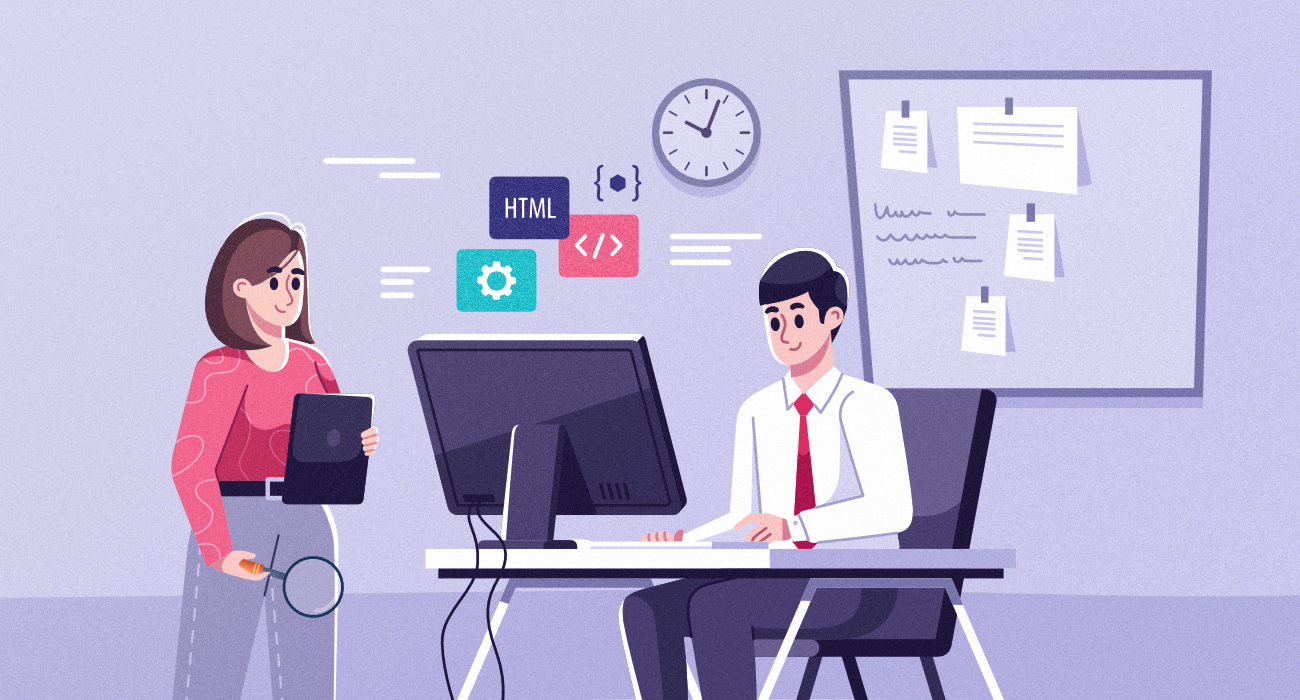In order to make computers smarter and help us make our lives better, Artificial Intelligence came about several decades ago. Contrary to popular opinion, AI does not take away human jobs and brings misery to human life but rather acts as a catalyst to enhance how we work, function, and live as a civilization.
Why has AI Gained Popularity Recently?
Previously, many people rudimentarily associated AI with robots. But AI is beyond that; it plays a vital role in our lives now. Personal gadgets, smart cars, media streaming gadgets, and home appliances use artificial intelligence.
Also, businesses use it to improve customer experience and management functions. Researchers and scientists use AI to make human lives better.
AI has recently gained a lot of popularity, not only because of the points mentioned above but also due to this fatal coronavirus pandemic.
Here are the points that have made AI gain much popularity in this pandemic.
- Understanding and forecasting epidemics and pandemics and finding a cure
- Understanding shifting consumer needs
- Making virtual experiences more real
- Going fully digital
- Making way for robots to empower the human workforce
- Cybersecurity
- Smarter digital devices
These are the reasons that will also allow AI to shape our future post-coronavirus. To get a clear picture of how artificial intelligence future trends will shape our reality--keep reading.
Top 8 Most Anticipated Artificial Intelligence Trends of 2022
Here's how artificial intelligence trends will shape our lives for good post the coronavirus pandemic.
Table of Contents
- Sharper Big Data Analytics and Insights With Easy Access to Vast and Quality Data
- Predictive Analytics will Work As Prevention of Major Business Loss
- AI will Refine Business Processes and Bring Hyper Automation
- AI will Be Able to Detect User Behavioral Transformation
- More Personal and Immersive Gaming and Entertainment Experience
- Artificial Intelligence will Make Cybersecurity More Potent to Face Modern Cyber Crimes
- AI Powered Chatbot will Emerge as a Winner in Terms of Offering Personalized Support
- AI Enabled Chips will Become New Normal For All the Smartphones
1. Sharper Big Data Analytics and Insights With Easy Access to Vast and Quality Data
The volume and quality of data available on buying trends, demand, and supply of a service or product, etc., aid in predicting the market scenario and making smarter business choices.
Cognitive AI -- Machine Learning helps businesses and researchers gather this to make data-driven decisions. Note that this data processing requires real-world interactions, which is obviously time-consuming and prone to errors.
But in the future, technological advancements like the Internet of Things and Big Data will make access to accurate data very easy.
For example, the automobile industry can gain countless hours of driving data without running vehicles on the road with advanced lab simulations; this helps car manufacturers get precise reports on desired variables cost-effectively.
Therefore in the near future, we will see this artificial intelligence trend more because people post coronavirus will naturally rely on technology to simulate real-life on-road situations in a laboratory.
2. Predictive Analytics will Work As Prevention of Major Business Loss
Artificial intelligence till now was helping businesses predict future moves. Predictive analysis was also used in several other industries, like the healthcare stock market, etc., but post-coronavirus, we will see predictive analysis of AI used more prominently, particularly for predicting possible epidemics and pandemics.
We will see an artificial intelligence future trend called AI-assisted epidemiology. It will comprise a host of systems built that will accurately predict how, when, and where future outbreaks will occur.
These systems have been built for some time. Did you know AI created the earliest alert about the Coronavirus outbreak? Canada-based BlueDot's tool was already scanning 100,000 media and government data sources daily when it issued an alert of a possible virus outbreak in Wuhan, China, on December 31, 2019.
Researchers and epidemiologists are further expecting breakthroughs in the next year or two to leverage artificial intelligence to enhance our power to identify, predict, and control fatal virus outbreaks.
This will also mandate consistent cross-border cooperation between governments and also among the global private industry. This future artificial intelligence trend will depend on technological advancements, global politics, and legislators. Matters such as the transparent exchange of information on medical datasets will also be discussed by governments widely over the coming year.
3. AI will Refine Business Processes and Bring Hyper Automation
Right now, robotic process automation only frees us from certain tasks. These tasks are menial and monotonous. They happen to take countless human hours and require elaborate efforts. Therefore, it allows the manpower to use their time and energy in more complex, demanding, creative, and responsible tasks; this helps an organization grow faster and benefits every individual personally.
Having said that, the use of robotic process automation is still limited and will grow in the near future.
In the future, the advancement in Artificial Intelligence and robotic process automation will make business processes smarter. Businesses that now use RPA will look for more than one way to leverage these tools to enhance their business processes.
This will lead to replacing the common practice of outsourcing business operations to off-shore locations with many in-house robots. Quite futuristic, isn't it?
For this to happen, in-house robot developers will be put in place to design and deploy robotic artificial intelligence as and when needed. This advanced practice is called Robosourcing.
Robosourcing will help businesses make their workplace a self-sufficient AI manufacturing and using space.
This practice will not only revolutionize day-to-day business processes but also enhance the efficiency of employees. We will see this artificial intelligence future trend more evidently because post-coronavirus businesses will like to keep their in-house team leaner.
4. AI will Be Able to Detect User Behavioral Transformation
The coronavirus has changed every aspect of human life. From how we live, work, and socialize to how we shop!
It is no mystery that we have seen exponential growth in the digital adaptation of many aspects of society in recent years, but 2020 made us witness a stampede.
Amazon's sales during the second quarter of 2020 were up 40% in the same period last year.
Amazon's CEO, Jeff Bezos
The point I am trying to make here is that even those who had shunned taking their business online are forced to reassess their options.
And they did! When businesses went online, they figured out the importance of predicting consumer behavior online and how artificial intelligence makes it very easy to do so.
AI tools and platforms are already in place to help businesses understand how consumers adapt to new trends.
Businesses that already had The E-Commerce store setup now realize the importance of advanced predictive and analytical concepts powered by AI; this is also partly because of the destruction caused by the coronavirus in the supply chain.
5. More Personal and Immersive Gaming and Entertainment Experience
Artificial intelligence is revolutionizing the entertainment and gaming industry. This was so even before the coronavirus pandemic, but this pandemic has made people rely more on getting realistic and social experiences from virtual tools like smartphones and gaming consoles.
AI will enable businesses to cater the right content to the right people at the right time. This will also be determined by what they've consumed, inquired about, or their demographics.
AI-powered recommending algorithms like Amazon's "customers who bought this item also bought" and Netflix's "since you watched this, you might also like" is something consumers love.
Machine Learning displays these recommendations based on a viewer's behavior on the platform, like what genre of shows you previously watched, what you're interested in, etc. When you choose to see the suggestions or don't, the machine learns your pattern and better understands your behavior.
AI has made gaming an immersive experience. Out of many things, AI can change the difficulty level of games according to players. Deep mind's Alpha Go Zero is an AI bot that self-learns the game of Go.
Alpha Go Zero beating Ke Jei
It got so good that it beat the reigning champion of the game, 19-year-old Ke Jei. Read more on this and how AI will revolutionize the gaming-scape here.
Thus, in the future artificial intelligence will bring about personalization that will be more precise, allowing businesses to deliver tailored customer entertainment and gaming experience to everyone.
6. Artificial Intelligence will Make Cybersecurity More Potent to Face Modern Cyber Crimes
Another artificial intelligence trend that we might see in the future is super-efficient cybersecurity.
Artificial intelligence and machine learning technology are proving to be much-needed catalysts in cybersecurity systems deployed in public or private spaces.
With the passage of time, the threat of cyber-attacks keeps on increasing. Therefore cybersecurity experts are always on the urge to keep up with evolving threats like hacking, phishing, ransomware, malware, DDS attacks, and more.
Machine Learning and Artificial Intelligence technology can be deployed to help identify and prevent such malicious online threats.
When it comes to businesses, AI-powered cybersecurity tools can also gather data from a company's communications networks, digital activity, transactional systems, websites, and other external public sources. These tools then run algorithms to identify patterns and detect or predict threatening activity, potential data breaches, etc.
We can guess the severity of cyber threats by how hackers are targeting the vaccine development processes for coronavirus.
Oxford vaccine manufacturers reported that Russian hackers were targeting their computers to gain insights into their vaccine development process. Recently Indian pharma company Dr. Reddy also reported that hackers had attacked their computers.
7. AI-Powered Chatbot will Emerge as a Winner in Terms of Offering Personalized Support
Chatbots are one of the most effective breakthroughs in Artificial Intelligence trends.
Chatbots are one of the few Artificial Intelligence trends that positively impact a business across all levels.
Chatbots are generally used for
- Customer Acquisition
- Customer Support
- Customer Service
- Customer Retention
- Marketing, and
- Sales
The list, as mentioned above, is not an exhaustive one.
AI-driven conversational chatbots are the Artificial Intelligence trends of the future in many ways. This is how they revolutionize customer experience activities and automatically interact with customers without needing any human support. Many chatbots use data from huge databases of previous interactions to make their conversation with people more personal.
In the near future, we will see how Chatbots will match human conversation more and more. For instance, AI-driven chatbots can recall some parts of a conversation with a client and make a personalized conversation using them.
The coronavirus has made others rely more and more on online shopping. The use of online shopping and chatbots was short after countries across the globe started to lock down.
Chatbots rely on real-life human customer service agents; this helps digital businesses offer customer experience as good if not better than in-store customer experience.
8. AI Enabled Chips will become the new normal for all smartphones
AI-Enabled Chips are the latest Artificial Intelligence trend. And this artificial intelligence trend is being adopted fast. This can be said by the fact that AI-enabled chips will reach an estimated revenue of $91,185 Million in 2025 from $6,638 Million in 2018.
AI-Enabled Chips will ensure that complex tasks requiring artificial intelligence, such as:
- object detection
- facial recognition
- natural language processing
- computer vision is carried out much faster and more effectively.
Several companies like NVIDIA, Qualcomm, and AMD are moving ahead in creating AI-Enabled Chips to enhance AI application performance.
Qualcomm's new AI-Enabled Snapdragon processors in 2020 will allow users to perform as many as 15 trillion operations per second with efficiency.
Qualcomm aims to improve AI-based phone services like photography, real-time AI translation, virtual assistants, etc. All this while considerably using lesser power.
This Artificial Intelligence trend will also come with the change in the hardware or mobile devices. We will see specialized processors along with the CPU, as only the CPU won't suffice. Hardware changes will be needed to perform complex mathematical computations that are needed for AI models.
Furthermore, while some brands have already integrated AI-Enabled Chips, like Apple, in the future, all smartphones will come with an AI-enabled chip.
Conclusion
The only good thing coronavirus has brought about is good hand hygiene and making people adapt to artificial intelligence more effectively.
The above-mentioned Artificial Intelligence future trends give us an optimistic view of the future. More than any other technological future trends, Artificial Intelligence future trends promise many possibilities. Artificial Intelligence in the future is set to benefit almost all important technologies by bringing about Industry Revolution 4.0--automation, agriculture, aerospace, construction, logistics, robotics, and connected mobility are some of the sectors artificial intelligence will benefit from.
It is also important to note that because of the virus, we may see the presence of artificial intelligence around us more evidently than we would have otherwise.















Leave a Reply